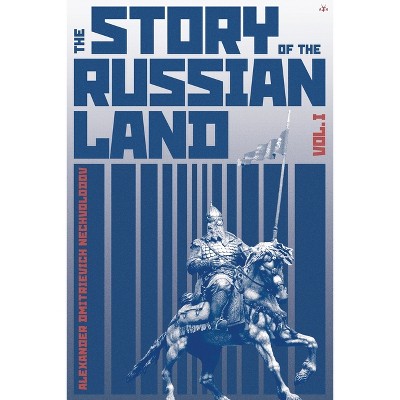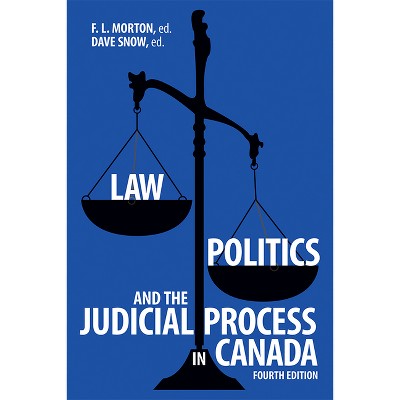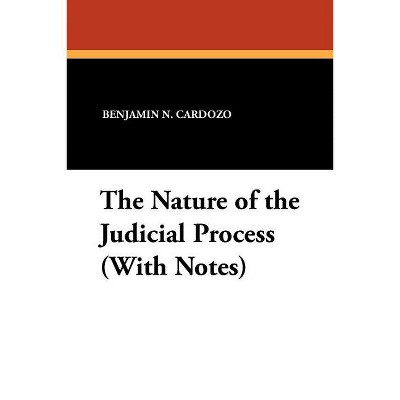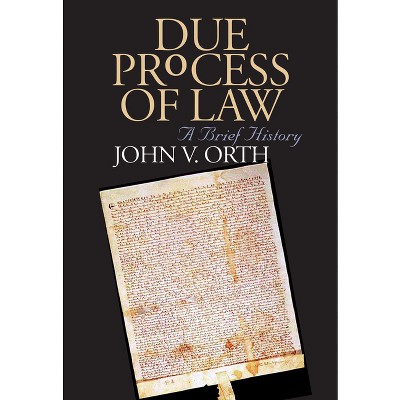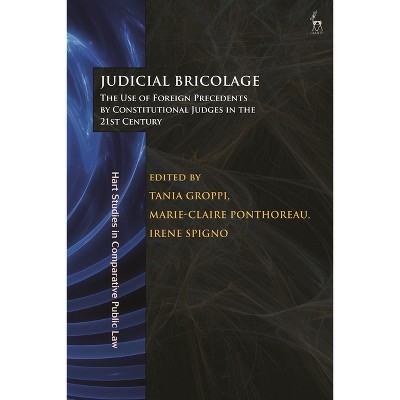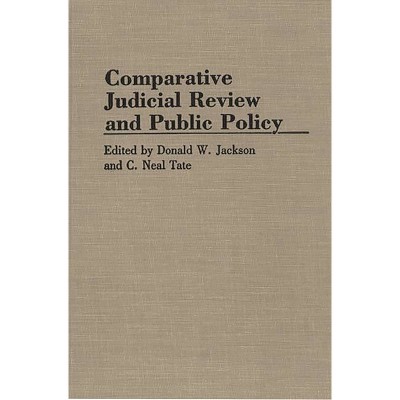Sponsored

Law Clerks and the Judicial Process - by John B Oakley & Robert S Thompson
$95.99
In Stock
Eligible for registries and wish lists
Sponsored
About this item
Highlights
- This is the first in-depth empirical and historical study of the use of law clerks by American judges.
- Author(s): John B Oakley & Robert S Thompson
- 198 Pages
- Freedom + Security / Law Enforcement, Courts
Description
About the Book
This is the first in-depth empirical and historical study of the use of law clerks by American judges. Although possessing a hundred-year heritage, the institution has been ignored as an important component of the process of judicial decision-making. Law clerks are, in the authors' words, "subordinate, anonymous, but often quite powerful lawyers who function as the non-commissioned officers in the army of the judiciary." American courts are currently altering the traditional use of law clerks through the introduction of important innovations that enhance the ability of judges to dispose of cases rapidly but detract from personal judicial control over individual decisions. The authors investigate the clash of tradition and innovation through interviews with sixty-three judges of federal courts and appellate courts in California. They find distinctly different models of law clerk usage in the state and federal systems, which they analyze on the basis of the judges' own perceptions of the qualitative and quantitive impact on their decision of variations in the character, tenure, and duties of staff assistants. They offer suggestions on how modern courts can cope with the "crisis of volume" without unduly sacrificing traditional standards of judicial autonomy. Because of the confidential nature of judicial deliberations, judges are rarely willing to discuss publicly their use of law clerks. This study employs unconventional techniques for penetrating the secrecy of judicial chambers while respecting the confidentiality and the individuality of its sources. It presents important new information on the internal operating procedures of the courts studies, collating interview data with facts abstracted from pre-existing but often obscure sources, and providing a particularly close look at the inner workings of the Supreme Court of California and the United States Court of Appeals for the Ninth Circuit. Revealing the significance of public funding of judicial staff in determining patterns of law clerk usage, it should promote further investigation and debate regarding the proper structure and role of staff assistance in the judicial process. This title is part of UC Press's Voices Revived program, which commemorates University of California Press's mission to seek out and cultivate the brightest minds and give them voice, reach, and impact. Drawing on a backlist dating to 1893, Voices Revived makes high-quality, peer-reviewed scholarship accessible once again using print-on-demand technology. This title was originally published in 1980.Book Synopsis
This is the first in-depth empirical and historical study of the use of law clerks by American judges. Although possessing a hundred-year heritage, the institution has been ignored as an important component of the process of judicial decision-making. Law clerks are, in the authors' words, "subordinate, anonymous, but often quite powerful lawyers who function as the non-commissioned officers in the army of the judiciary." American courts are currently altering the traditional use of law clerks through the introduction of important innovations that enhance the ability of judges to dispose of cases rapidly but detract from personal judicial control over individual decisions. The authors investigate the clash of tradition and innovation through interviews with sixty-three judges of federal courts and appellate courts in California. They find distinctly different models of law clerk usage in the state and federal systems, which they analyze on the basis of the judges' own perceptions of the qualitative and quantitive impact on their decision of variations in the character, tenure, and duties of staff assistants. They offer suggestions on how modern courts can cope with the "crisis of volume" without unduly sacrificing traditional standards of judicial autonomy. Because of the confidential nature of judicial deliberations, judges are rarely willing to discuss publicly their use of law clerks. This study employs unconventional techniques for penetrating the secrecy of judicial chambers while respecting the confidentiality and the individuality of its sources. It presents important new information on the internal operating procedures of the courts studies, collating interview data with facts abstracted from pre-existing but often obscure sources, and providing a particularly close look at the inner workings of the Supreme Court of California and the United States Court of Appeals for the Ninth Circuit. Revealing the significance of public funding of judicial staff in determining patterns of law clerk usage, it should promote further investigation and debate regarding the proper structure and role of staff assistance in the judicial process. This title is part of UC Press's Voices Revived program, which commemorates University of California Press's mission to seek out and cultivate the brightest minds and give them voice, reach, and impact. Drawing on a backlist dating to 1893, Voices Revived makes high-quality, peer-reviewed scholarship accessible once again using print-on-demand technology. This title was originally published in 1980.Dimensions (Overall): 8.5 Inches (H) x 5.5 Inches (W) x .63 Inches (D)
Weight: .84 Pounds
Suggested Age: 22 Years and Up
Number of Pages: 198
Genre: Freedom + Security / Law Enforcement
Sub-Genre: Courts
Publisher: University of California Press
Format: Hardcover
Author: John B Oakley & Robert S Thompson
Language: English
Street Date: June 12, 2024
TCIN: 1005685480
UPC: 9780520414716
Item Number (DPCI): 247-47-5240
Origin: Made in the USA or Imported
If the item details aren’t accurate or complete, we want to know about it.
Shipping details
Estimated ship dimensions: 0.63 inches length x 5.5 inches width x 8.5 inches height
Estimated ship weight: 0.84 pounds
We regret that this item cannot be shipped to PO Boxes.
This item cannot be shipped to the following locations: American Samoa (see also separate entry under AS), Guam (see also separate entry under GU), Northern Mariana Islands, Puerto Rico (see also separate entry under PR), United States Minor Outlying Islands, Virgin Islands, U.S., APO/FPO
Return details
This item can be returned to any Target store or Target.com.
This item must be returned within 90 days of the date it was purchased in store, shipped, delivered by a Shipt shopper, or made ready for pickup.
See the return policy for complete information.
Frequently bought together
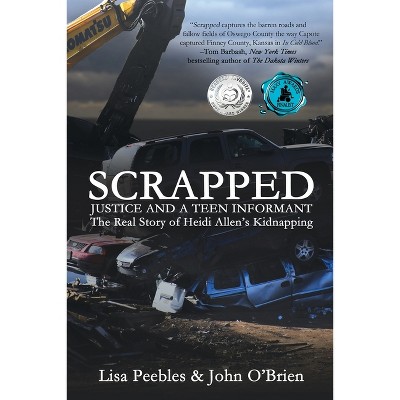
$19.60
MSRP $21.95
Buy 2, get 1 free select books, music & movies
3.5 out of 5 stars with 2 ratings
Trending Non-Fiction

$15.68
Buy 2, get 1 free select books, music & movies
4.8 out of 5 stars with 190 ratings

$4.59
MSRP $7.99
Buy 2, get 1 free select books, music & movies
4.8 out of 5 stars with 120 ratings

$19.31
was $20.98 New lower price
Buy 2, get 1 free select books, music & movies
4 out of 5 stars with 60 ratings

$19.58
MSRP $29.00
Buy 2, get 1 free select books, music & movies
4.6 out of 5 stars with 13 ratings

$6.20
MSRP $10.95
Buy 2, get 1 free select books, music & movies
4.8 out of 5 stars with 33 ratings

$21.00
MSRP $32.00
Buy 2, get 1 free select books, music & movies
5 out of 5 stars with 3 ratings



